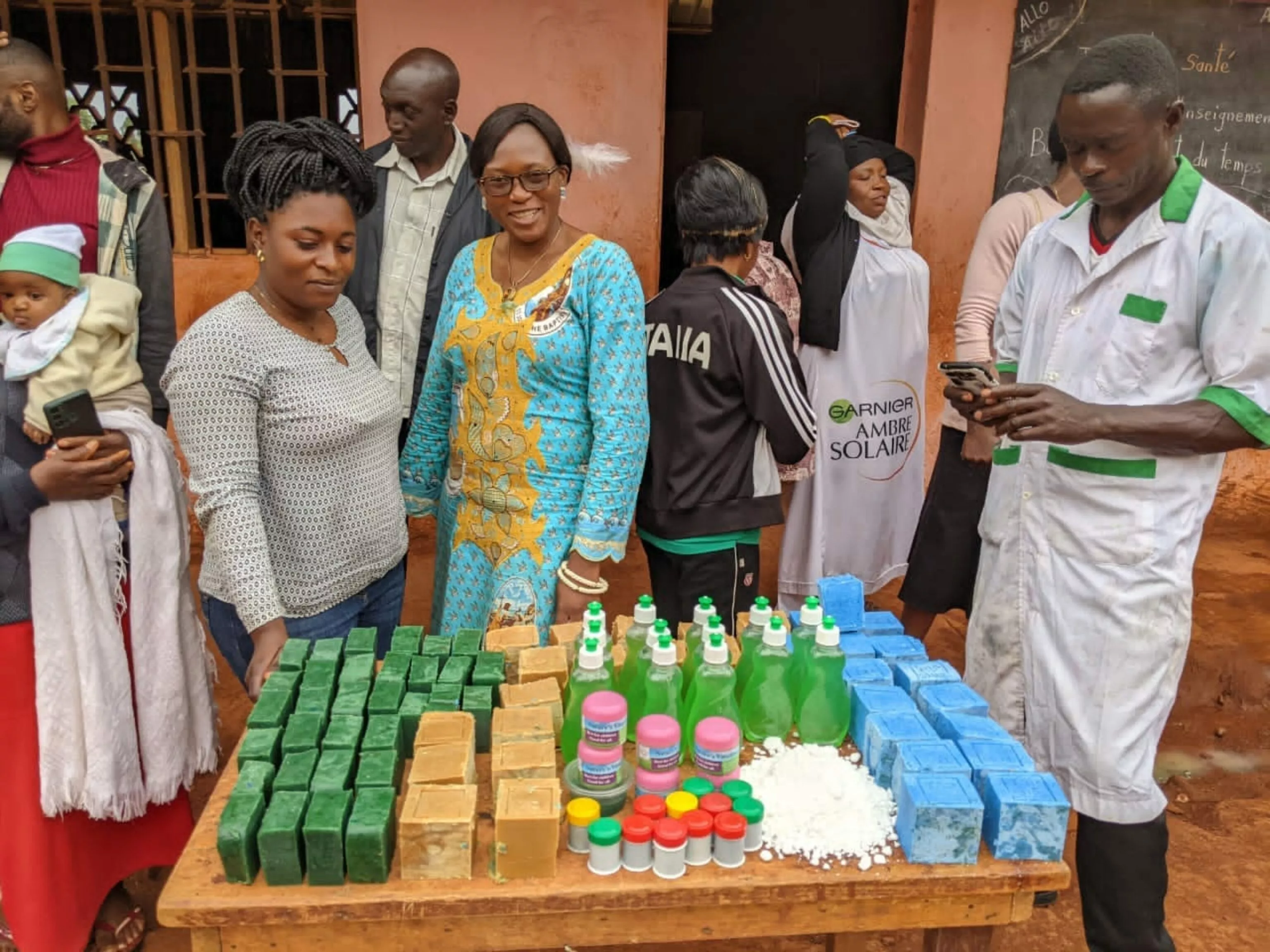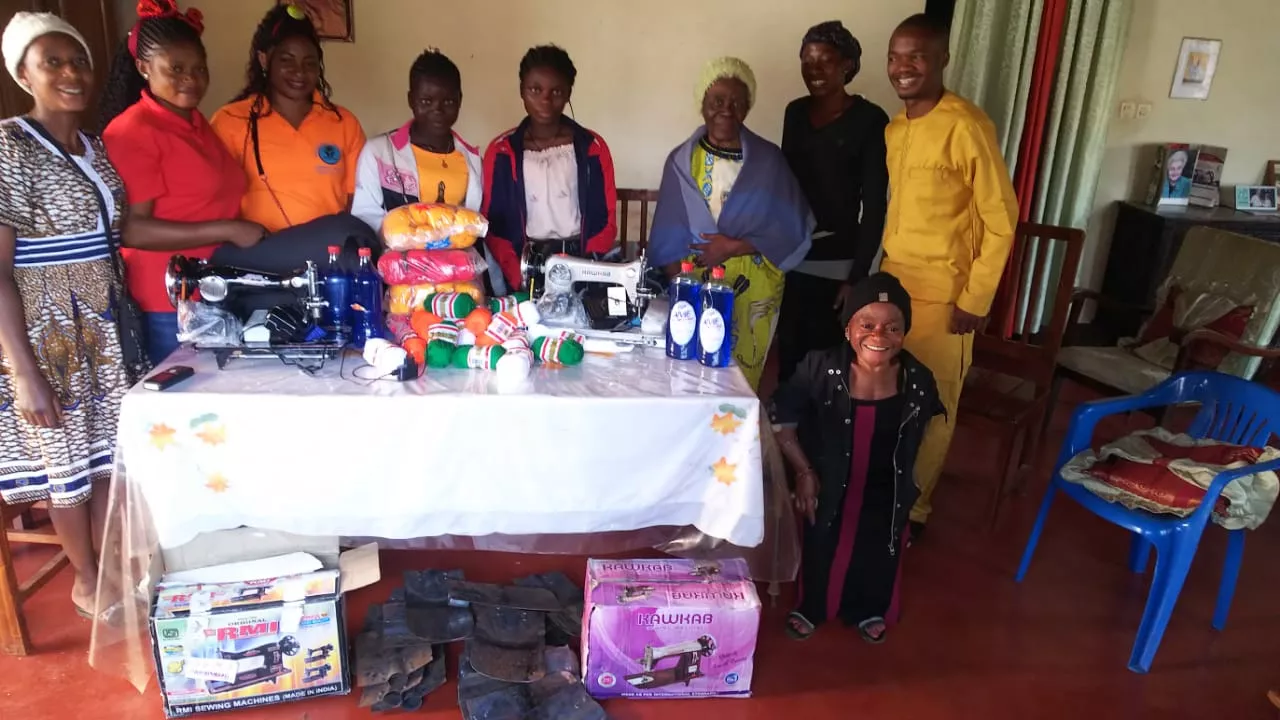Project Summary Completed in September 2024
Context and Issues:
- The crisis in the Northwest and Southwest regions of Cameroon has led to the displacement of many people to other cities.
- Internally displaced people, having lost their livelihoods, find themselves in extreme poverty, unable to meet their own and their families’ basic needs.
Project Implementation:
- Identification and Selection:
- Registration and selection of 50 beneficiaries based on inclusion criteria.
- Training Organization:
- Formation of training groups.
- Survey of beneficiaries’ preferred activity sectors.
- Training Programs:
- Financial management for small businesses and income-generating activities.
- Awareness sessions on gender-based violence.
- Techniques for making powder, liquid, and solid soaps.
- Beaded sandal and slipper making.
- Traditional clothing design.
- Support and Logistical Assistance:
- Project progress reporting.
- Purchase of materials to create production kits for each beneficiary.
- Procurement or renewal of contracts for sales locations for each beneficiary.
- Distribution of materials and production kits to the 50 beneficiaries.
- Psychological, entrepreneurial, and commercial support.
- Various health awareness sessions.
- Monitoring and Evaluation:
- Follow-up visits (both unannounced and scheduled) to beneficiaries’ sales locations.
- Improvement of accounting oversight during visits.
- Collection of testimonials and success stories.
- Registration of beneficiaries’ activities as Very Small Enterprises (VSE) at the local level.
- Evaluation meeting and recommendations for project continuity in other cities.
- Submission of the final report.
Challenges Encountered:
- Initial mistrust from beneficiaries due to previous negative experiences with other organizations.
- This skepticism was overcome thanks to positive testimonials from previous beneficiaries of AECAC projects.
Notable Achievements and Improvements:
- Training and support provided to 50 displaced women in soap making, beaded footwear, sewing, and traditional clothing production.
- Workshops in financial education and small business management, as well as awareness sessions on gender-based violence.
- Participants achieved financial independence through the production kits and workspaces provided.
Positive Impacts:
- Social Impact: Beneficiaries, now self-sufficient, are supporting their families; each family, representing 50 individuals, has gained an income source. On average, 250 people have been positively impacted by the project, according to the National Institute of Statistics (an average of 5 members per family).
- Environmental Impact: Each beneficiary planted a tree near their residence, contributing to the preservation of the local environment.

